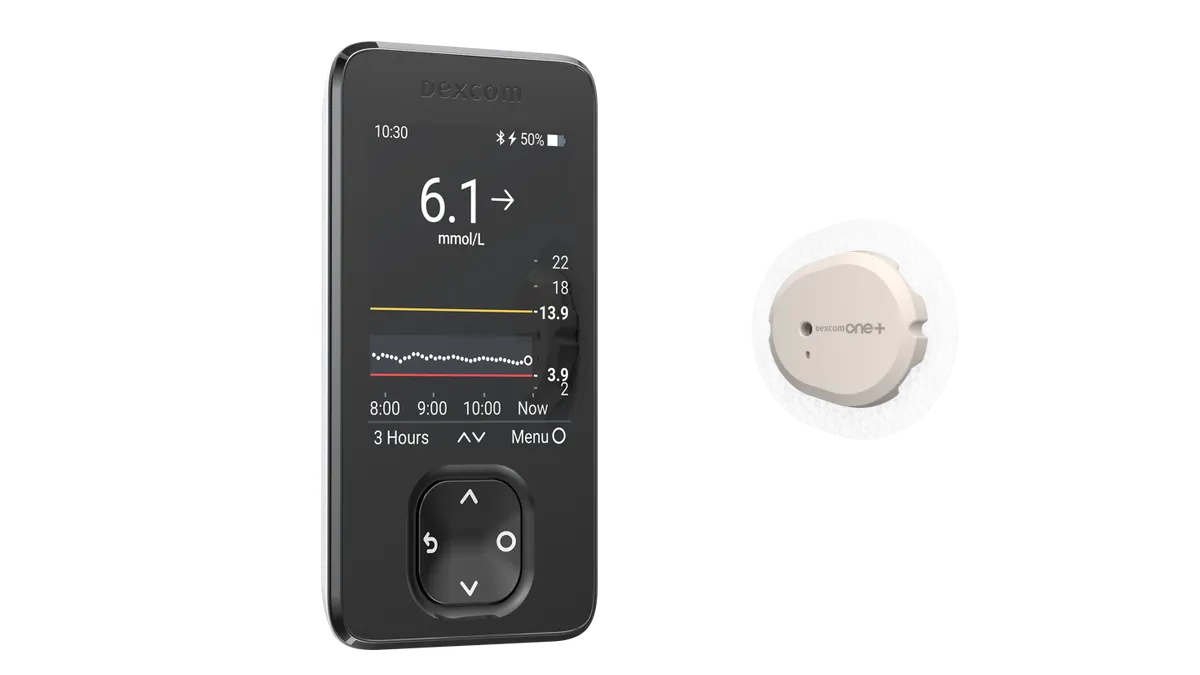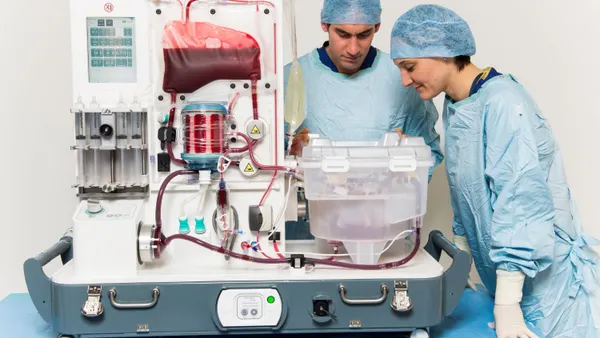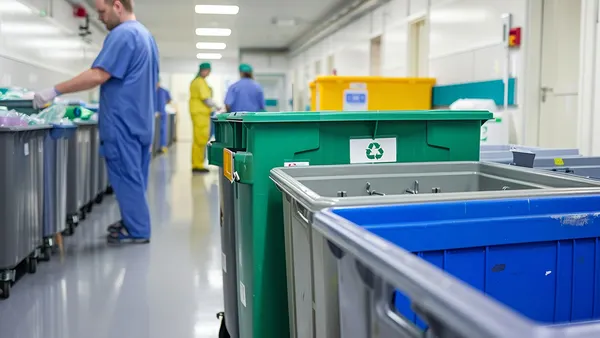UPDATE: June 24, 2025: This article has been updated to reflect changes in the Food and Drug Administration’s recall database to the number of recalled devices in commerce. The FDA’s database now shows more than 700,000 recalled receivers were distributed worldwide.
Dive Brief:
- A problem with Dexcom’s receivers for its glucose sensors may cause people to not get an audible alert for low or high blood sugar levels, the Food and Drug Administration said in an enforcement report posted Monday. More than 700,000 devices are affected by the Class I recall, the highest risk category.
- The receiver, a handheld device that gives glucose readings, may not provide an audible alert due to a manufacturing problem. Dexcom said in a letter to customers that, as of May, it had received 56 reports of severe adverse events, such as seizure, loss of consciousness, and other hypoglycemic or hyperglycemic symptoms. All of the people recovered, the company said.
- The recall applies to receivers associated with Dexcom’s G7, G6, One and One+ CGMs. Dexcom is asking users to return the affected devices and is offering replacements.
Dive Insight:
Dexcom started the recall on May 12. For the G7, more than 600,000 receivers were affected globally, while for the G6, more than 36,800 devices were affected. Tens of thousands of receivers for Dexcom’s One and One+ CGMs were also part of the recall.
At the end of 2024, Dexcom had about 2.8 million to 2.9 million users globally, according to the company’s annual report.
The manufacturing problem involves defective foam or an assembly error that may cause the receiver’s speaker to lose contact with the printed circuit board, according to entries posted in the FDA’s recall database. The affected devices will still provide hypoglycemia or hyperglycemia alerts through other cues, such as vibration and visual prompts, according to the database entry.
The recall does not affect people who use Dexcom’s mobile apps to display glucose values and for alerts and alarms, who make up the majority of the company’s users, Dexcom spokesperson James McIntosh wrote in an email. For the affected receivers that have been distributed, the reported incidence rate is .015%, according to the email.
Dexcom said in the June 3 letter to customers that it had received 112 complaints associated with the malfunction.
Dexcom is asking users to check if their receiver is affected and contact technical support to coordinate a return and receive a free replacement. The company also recommended regular testing of the speaker, regardless of whether a receiver is affected by the recall.
Earlier this year, Dexcom issued a Class II recall that said in rare situations, the Dexcom G6 touchscreen receiver may not provide high or low glucose alerts. At the time, Dexcom told users to check CGM glucose values regularly and to turn the receiver off and on.













